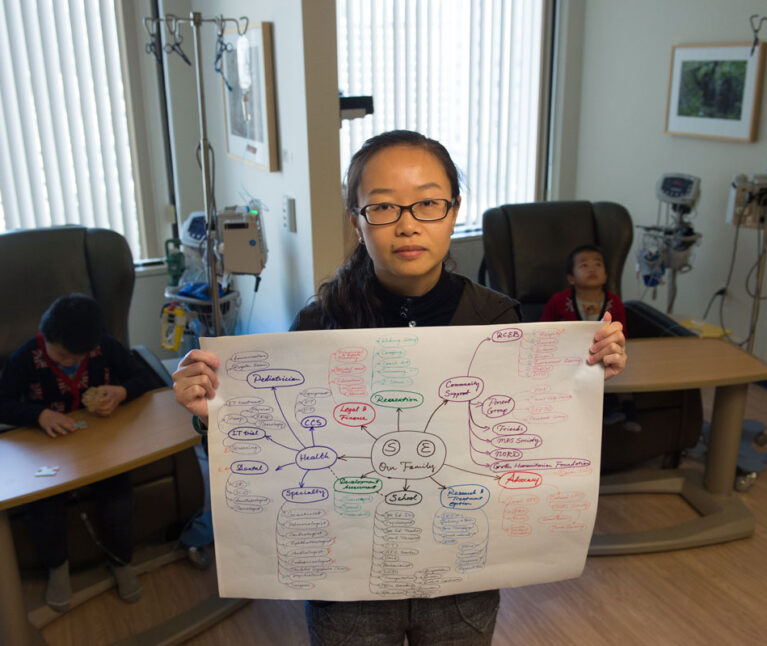Meet Stephen and Edward from Alameda County, CA.
Stephen and Edward live with Hunter syndrome.
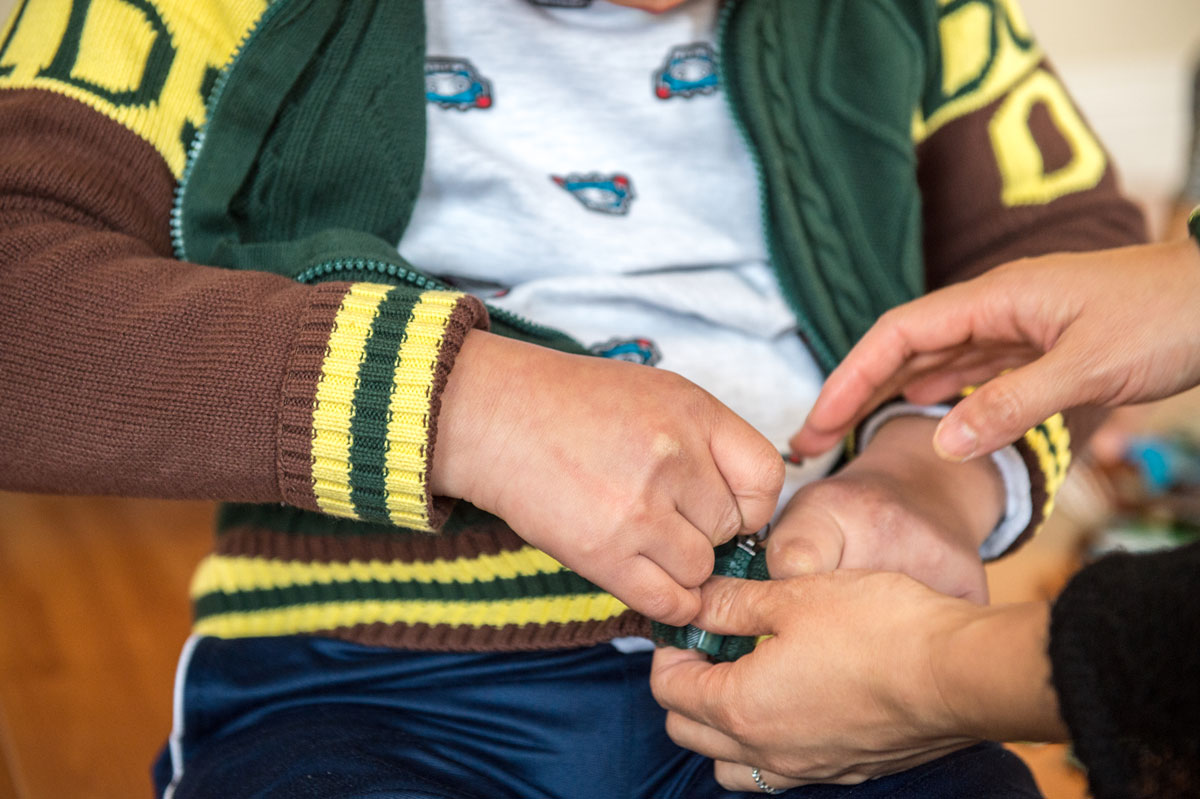
There are 200-300 children, virtually all boys, with Hunter syndrome in the US. Pei Wang is the mother of two of them, now age 5 and 8 years old. She says their predicted life span is 10-20 years. One symptom of this progressively degenerative condition is stiffening joints. Stephen has already lost his ability to dress himself. (Photo: Deanne Fitzmaurice)
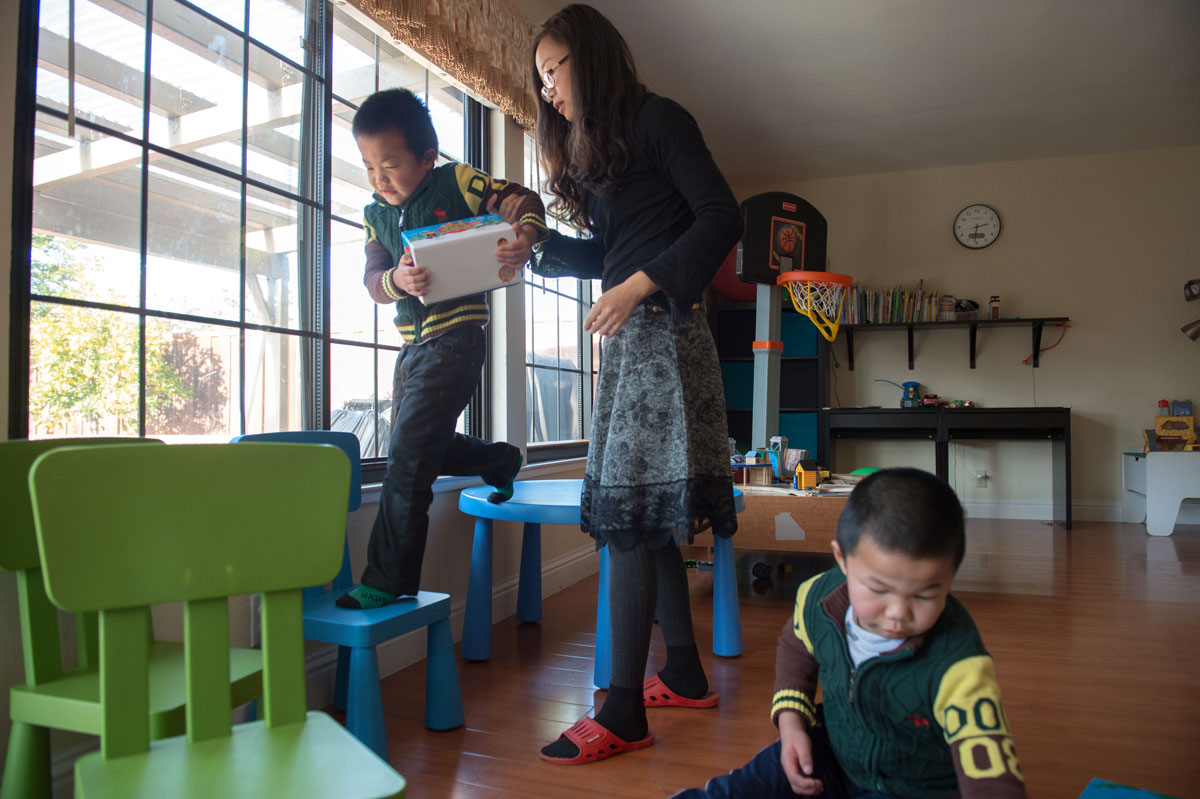
Hunter boys are missing one key metabolic enzyme, which affects every organ in their bodies, and causes gradual deterioration of their brain. Hunter syndrome is associated with hyperactivity, too. (Photo: Deanne Fitzmaurice)

Paperwork for Stephen and Edward – for this year alone – takes up an entire drawer in Pei’s file cabinet. The boys go to special day class at their school, and routinely receive occupational, physical, speech and behavioral therapies. Additionally, they also regularly visit various specialists to monitor the functions of liver, lung, heart, bone, neurology, eye and hearing. (Photo: Deanne Fitzmaurice)
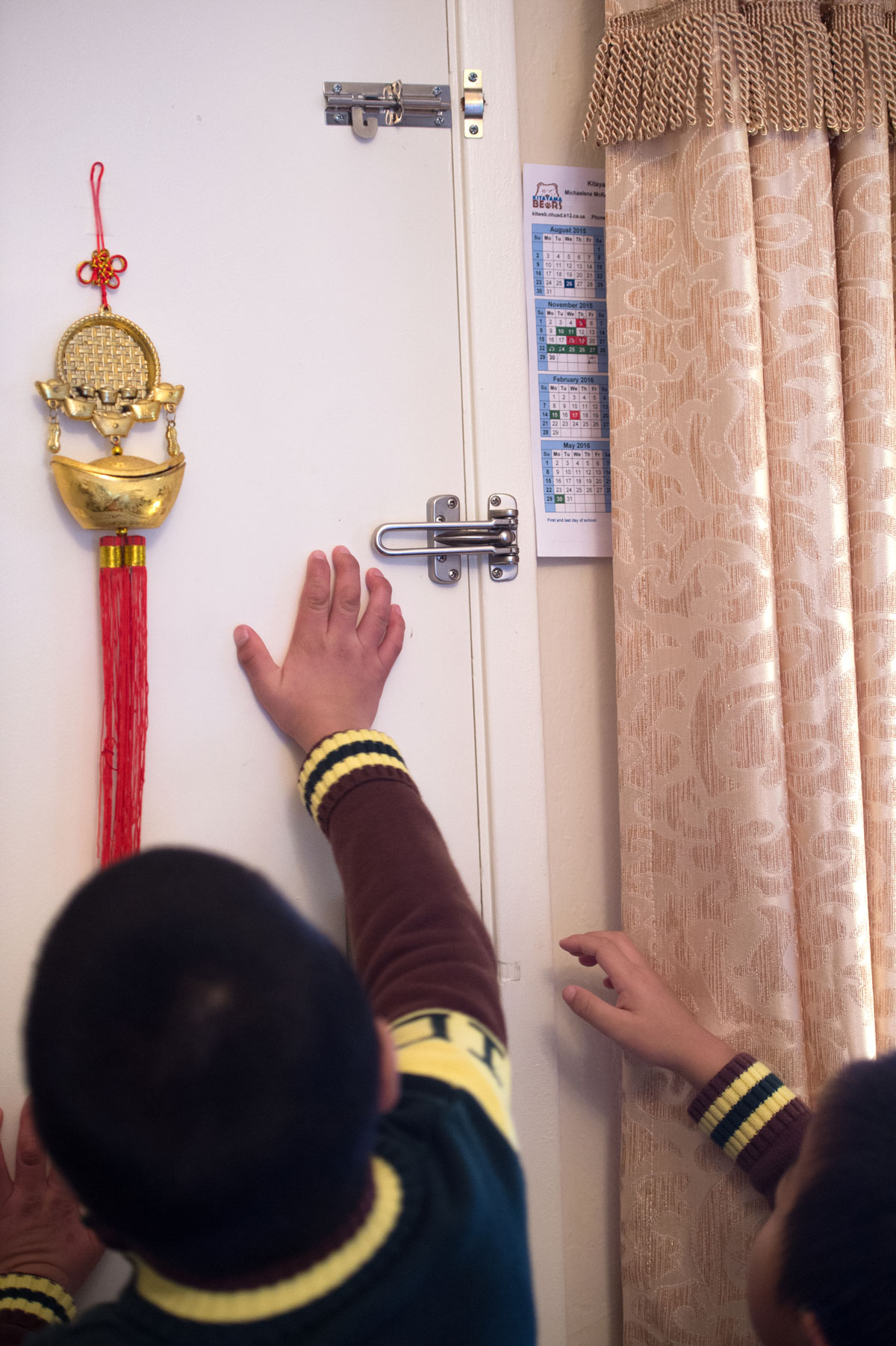
Pei and her husband have had to install multiple deadbolts on their front door to prevent Stephen and Edward from running into traffic. The boys have no sense of danger, Pei explains. (Photo: Deanne Fitzmaurice)
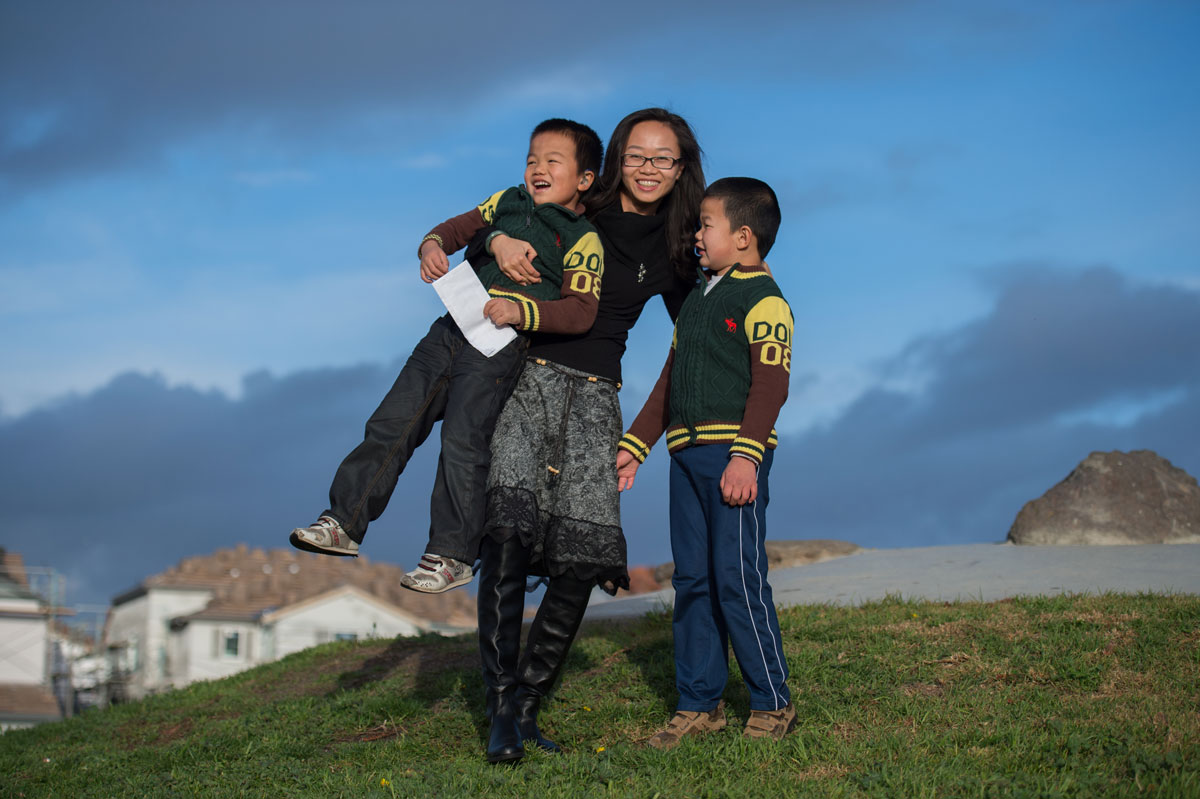
Pei and two of her three sons, near their home in Alameda County. Pei and her husband have a third son who is typically developing. (Photo: Deanne Fitzmaurice)
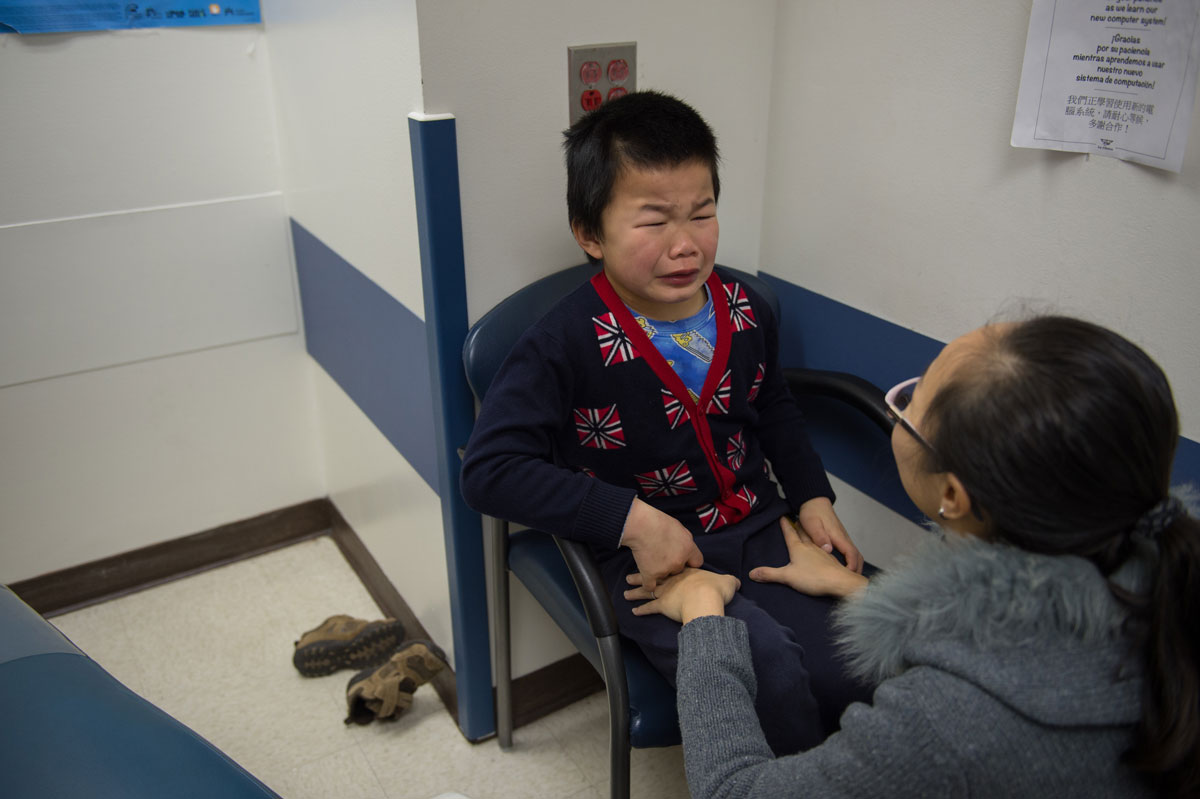
Stephen cries before a dentist appointment in Oakland, CA. Because he has so much difficulty in these appointments, Pei has to find dentists who can anesthetize or restrain him, even for routine dental work such as cleaning and fillings. Typically, she must wait six months or longer before getting him an appointment. As a result, Stephen has already had multiple teeth removed. (Photo: Deanne Fitzmaurice)
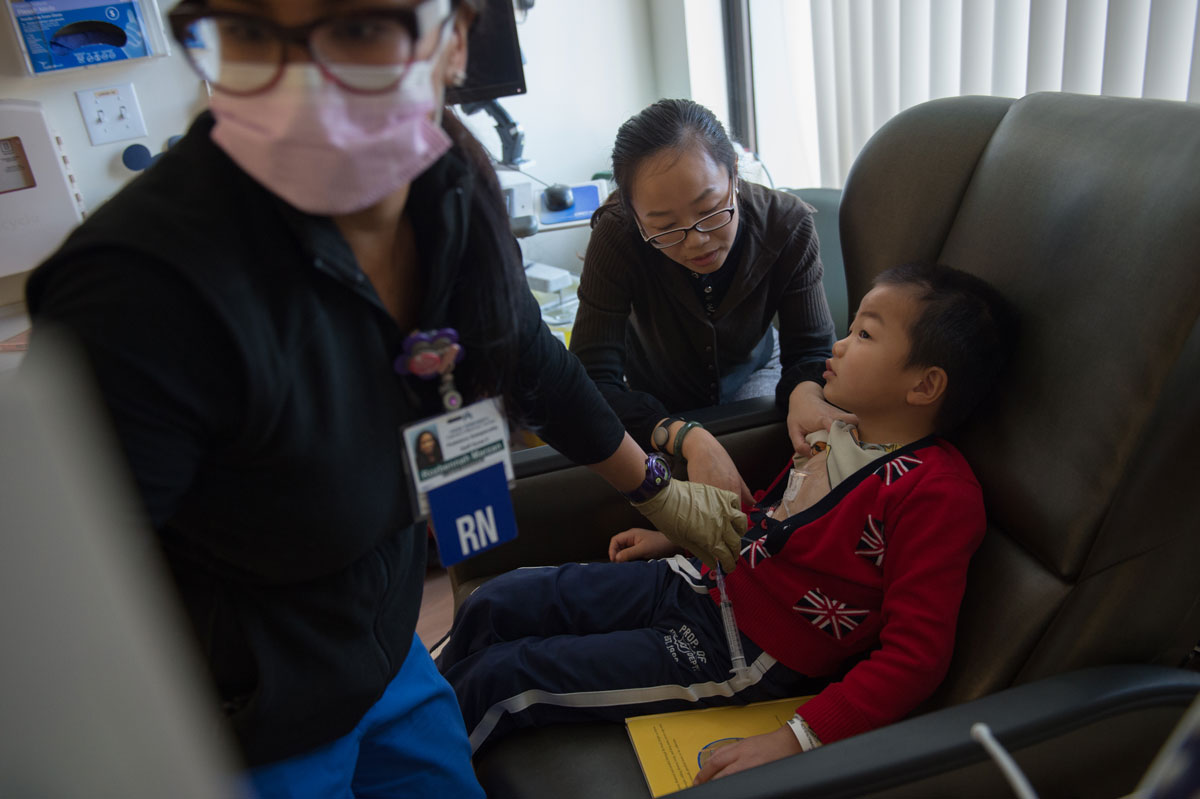
Stephen and Edward go to a weekly enzyme replacement treatment at Kaiser Permanente in Oakland. The treatment helps slow the disease’s progression, but isn’t a cure. Pei and her husband both have Ph.D’s in biology. “The cause behind Hunter syndrome is actually quite straightforward. But because it’s a rare disease, there isn’t much commercial interest to develop better treatment.” (Photo: Deanne Fitzmaurice)
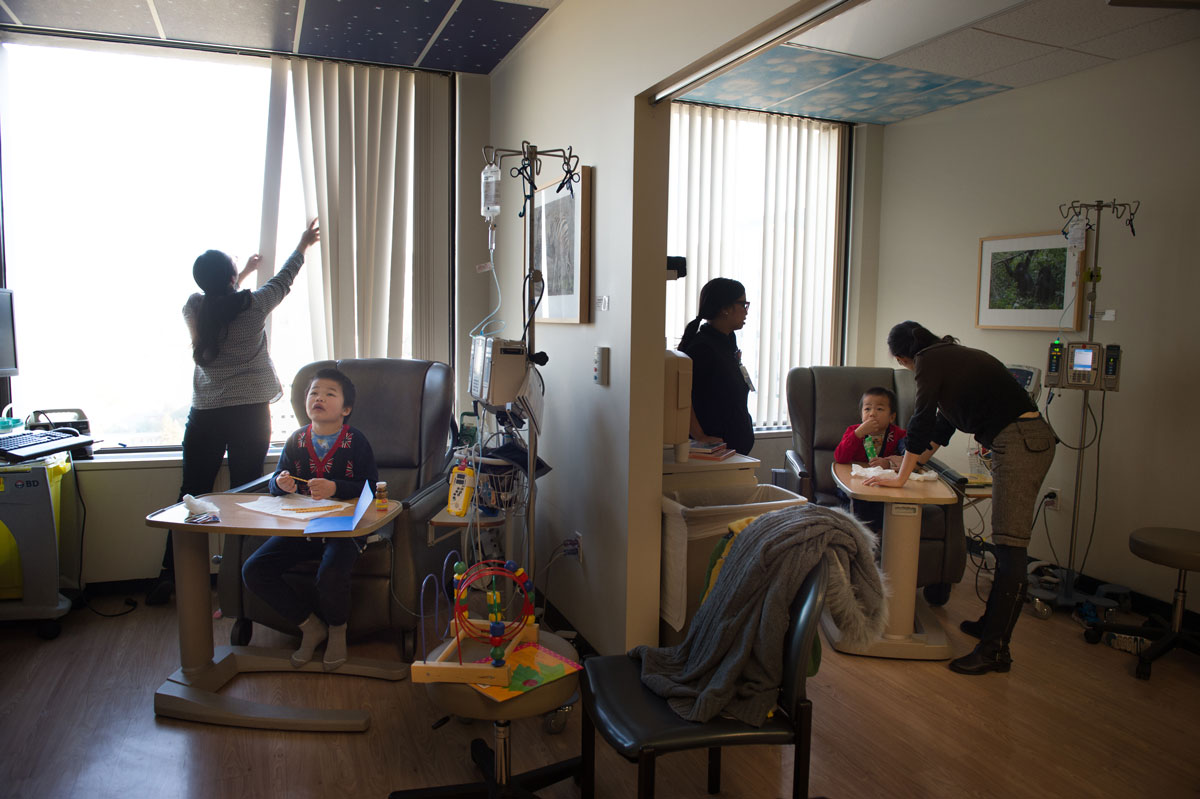
With the help of Merry Modesto (far left), her long-time clinical assistant, Pei feeds the boys and keeps them entertained during the three-hour enzyme replacement treatment. After coming to these appointments every week for four years, she has become a whiz at checking enzyme levels and her sons’ chest ports (a small appliance installed beneath the skin that allows medications to be injected, or blood to be drawn, with greater ease). She dreams of being able to administer this treatment in her own home, to avoid the difficult trips to the hospital. (Photo: Deanne Fitzmaurice)
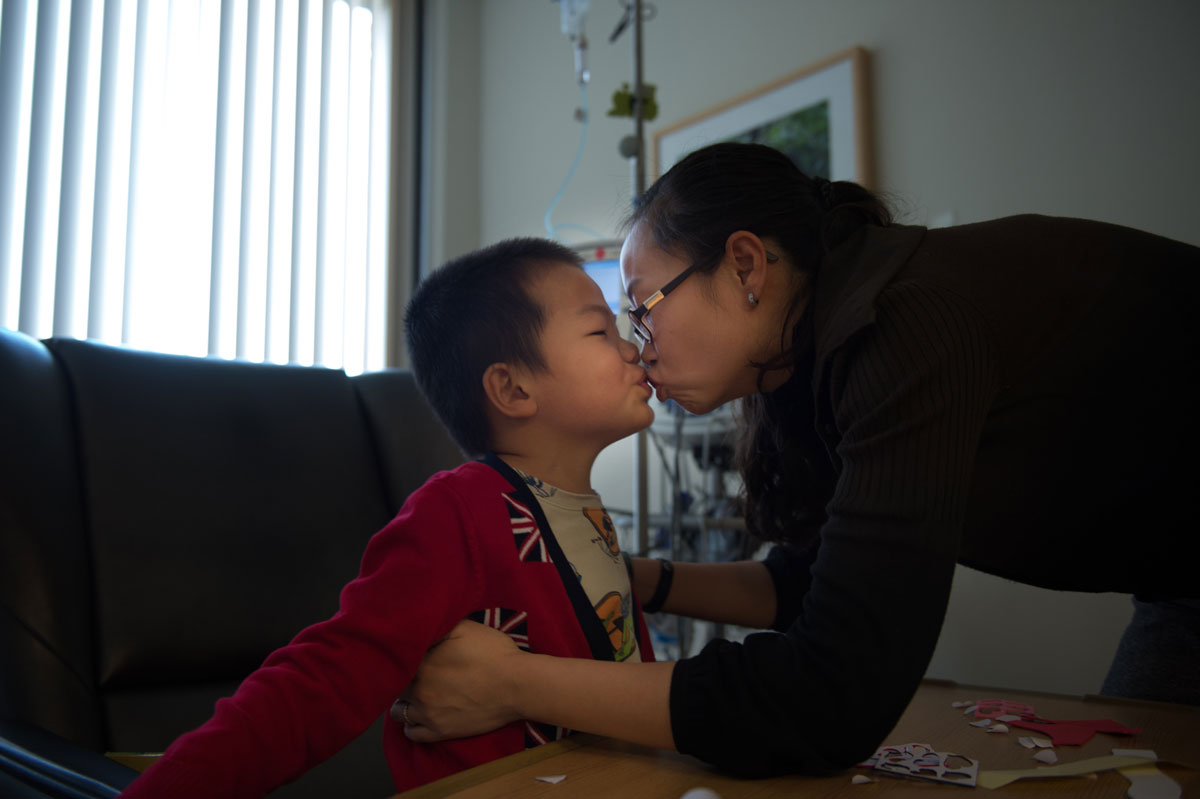
Pei kisses her middle son, Edward. “Maybe it’s the impact you make that is ultimately the meaning of life,” says Pei, who has become an advocate for her sons and other special needs children. “If you think of it that way, it doesn’t matter if your life is short or long. My boys have already made an impact.” (Photo: Deanne Fitzmaurice)
Stephen’s and Edward’s care map
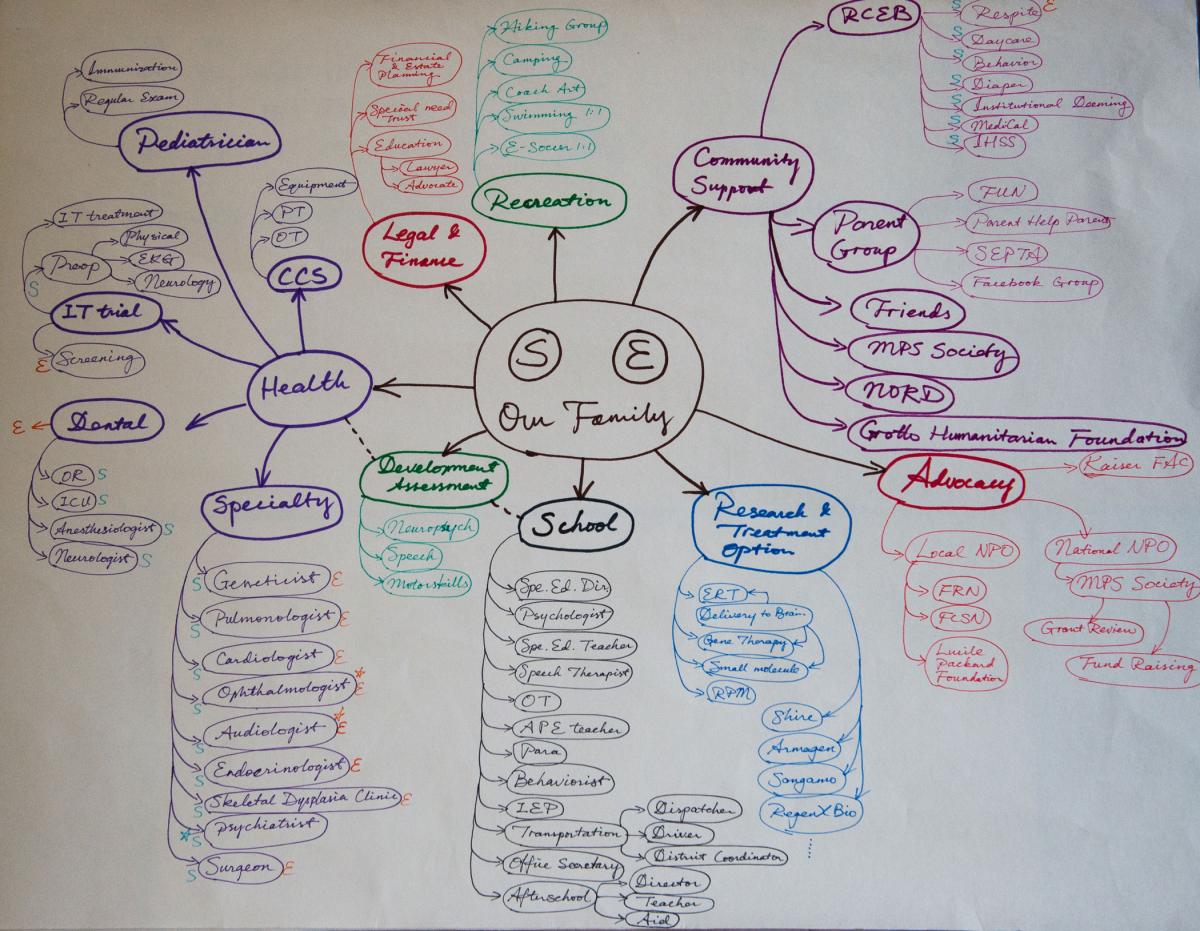
Stephen and Edward’s “care map,” which illustrates the complicated web of medical care and coverage, as well as educational and support services needed for children with medical complexity and their families.
